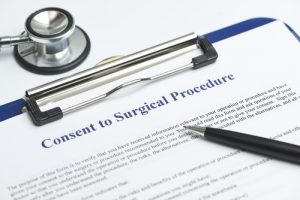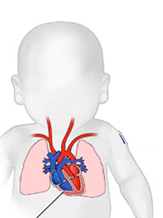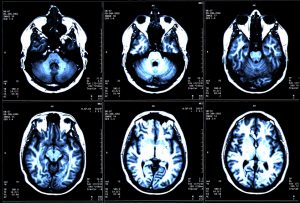
My MD project was originally designed to look at how junior doctors, specifically surgical SRMOs, understood surgical and medical consent. I was allocated to the Surgical Education group at Central Clinical School and worked with my supervisor to create a project that used his anecdotal evidence – amassed during his time as the interviewer for prospective surgical SRMOs at Royal Prince Alfred Hospital – as the framework for a larger project. His main concern was that junior doctors were generally not sufficiently educated about medical and surgical consent, and he thought that surgical SRMOs would be a good study group to illustrate this issue.
Initially, the project was designed using interview responses from SRMOs at Royal Prince Alfred Hospital, which I had planned to analyse using qualitative analysis techniques. However, while it received ethics approval from the local health district, it was refused approval by NSW Health due to the risk that interviewees could have been unduly stressed by the presence of an additional person in their high-stakes employment interview. As a result, my project has now morphed into a report that looks at the different stakeholders in the approval process and the ethical implications of the initial study.
Although my MD project has now changed significantly from its initial design, it has been a great learning experience (although not necessarily in the ways that I had expected). I’ve got a much better idea now of what it takes to independently design a research project and have made contacts within RPA’s Department of Surgery – as well as in the ethics office, which is just as important! It was also an unexpectedly good way to learn about the interview process for SRMO positions and what junior doctors at that level are expected to know.
I’d strongly recommend anyone interested in a surgical career to nominate a surgical MD topic. Even if on the surface it doesn’t seem like a traditionally ‘surgical’ project (i.e. like mine, which does not focus on technical surgery or quantitative data), you will acquire important skills and can connect with people in your field of interest.
By Josephine de Costa, Stage 3 Year 3 (2017)

Sydney University Surgical Society, in conjunction with the RPA Institute of Academic Surgery, invite medical students and junior doctors to an informative evening designed to give an overview of academic surgery and the career path of the academic surgeon.
This event is an excellent opportunity to learn from academic surgeons about research itself and how clinical and academic surgery fit together. The evening will also include presentations from a resident and registrar on their surgical research experiences during medical school and JMO years.
The evening is open to students from all medical schools as well as JMOs.
Speakers will include:
Michael Byrom – Director of Laboratory Research, IAS
Jonathan Hong – Deputy Director of Surgical Education, IAS
Anthony Marren – Research Lead for Gynaecological Surgery, IAS
Sanjay Warrier – Research Lead for Breast Surgery, IAS
Michael Seco – Cardiothoracic Registrar, RPAH
Kilian Brown – Resident, RPAH
Date: Wednesday, March 22, 2017
Time: 6:00 – 8:00pm
Location: Carslaw Lecture Theatre 159, University of Sydney
Registration is essential – please RSVP at this link.
See the Facebook event for further details.

With an interest in surgery, I was fortunate that Concord Clinical School offered several surgical MD supervisors and projects in 2014. I was especially lucky to be placed with the Concord burns team, one of three tertiary burns units in NSW, which has allowed me to develop my primary research capacities as well as my clinical and professional proficiencies.
As part of my MD project I was allocated the topic area ‘Negative pressure wound therapy (NPWT)’ and allowed free reign to explore what research question and format I wished to pursue. This open style forced me to develop, review, and re-develop my project from the ground up – a natural process in any form of primary research. The research journey over the last three years has been an incredible experience and has included drafting three research proposals, applying for and receiving animal ethics approval, animal handling and ethics training, additional lab work and training at the ANZAC Research Institute, development of a working murine (mouse) model as a pilot study, and testing of the NPWT device in this model.
Additionally, the MD Project and my links with the Concord burns team has afforded me other opportunities: assisting another MD student as second author on their systematic literature review, assisting the burns team as co-author of a review of burns therapies, attending a national conference on NPWT, forming relationships with research and clinical staff at Concord Hospital and the ANZAC Institute, and time in theatres assisting with acute burns surgery.
Having begun the MD process with zero experience in proposal writing, animal or lab work, I now feel confident to pursue these endeavours in my future career. I’m also thankful for the relationships I’ve formed as part of this process, and I have no doubt that they will be invaluable for whichever surgical career path I choose to take.
By Stuart Jackson, Stage 3 year 4 (2017)

I undertook my MD Research Project with the Heart Centre for Children, at the Children’s Hospital at Westmead (CHW). My primary supervisor was Professor David Winlaw, a paediatric cardiac surgeon and Head of the Heart Centre. My research was a review of the neonatal surgical and peri-operative management of a condition called Ebstein anomaly, which is a congenital malformation of the tricuspid valve that presents only very rarely – but when it does in a neonate, it can be with absent forward pulmonary flow, and gross right heart dilation – a blue baby. Urgent prostaglandin stabilisation is usually required, until the fœtal circulation definitively transitions, or with surgical intervention. Our research was a review of the surgical procedures conducted (and of their outcomes), as a number of different strategies can be performed, many with quite high rates of failure. The appropriate surgical algorithm for management of these neonates has not yet been elucidated.
I liked working on this project – first of all, because it was something that interested me. The project could be very demanding of my time, with deadlines for abstract and manuscript submission, and a lot of quite foreign concepts to rapidly come up to speed with. The only way that it’s possible to effectively dedicate yourself to clinical research is if you have a good idea a) of why you like it, and b) how and why it is helping. I met many interesting health professionals during my project – statisticians, cardiac surgeons, paediatric cardiologists, nurse researchers, secretaries, and even the person with the keys to the CHW basement! And everyone was necessary. It was a particular reward to get to travel to the United States to present my research in front of the surgeons who had invented and named the surgical techniques I was comparing!
I don’t think it is necessary to have a surgical career focus to do surgical research – nor do I think that you should do surgical research purely to gain surgical experience (e.g. I didn’t once step inside a theatre for the purpose of my research). But I think it is a very useful area of research in which there is lots of potential for development and which has real implications for the future. Above all – it is fun to be an expert at something! After a lot of time being a med student with only a vague understanding of most things, it is very rewarding to feel you have a good grasp on a particular area. Good luck to anyone who is pursuing surgical research!
By Jack Luxford, Stage 3 Year 4 (2017)

SUSS is proud to host Neurosurgical Grand Rounds presented by Dr Ben Jonker.
Dr Ben Jonker is a neurosurgeon based at RPA and St. Vincent’s hospitals. An alumnus of Sydney Medical Program (1999), Dr Jonker completed his surgical training in 2009. Dr Jonker has a particular interest in conditions treated with stereotactic and functional neurosurgery – and treats these with both open or minimally invasive neurosurgery and stereotactic radiosurgery.
Dr Jonker will introduce us to neurosurgery as a subspecialty and present several interesting cases. This will be of particular interest to Stage 2 students who will be completing their neuro block, however all students across different stages are welcome to attend.
Date: Wednesday 15 March, 2017
Time: 6.00 – 7.00 pm
Venue: New Law Lecture Theatre 106
RSVP on the Facebook event page.
Page 11 of 20« First«...910111213...20...»Last »




